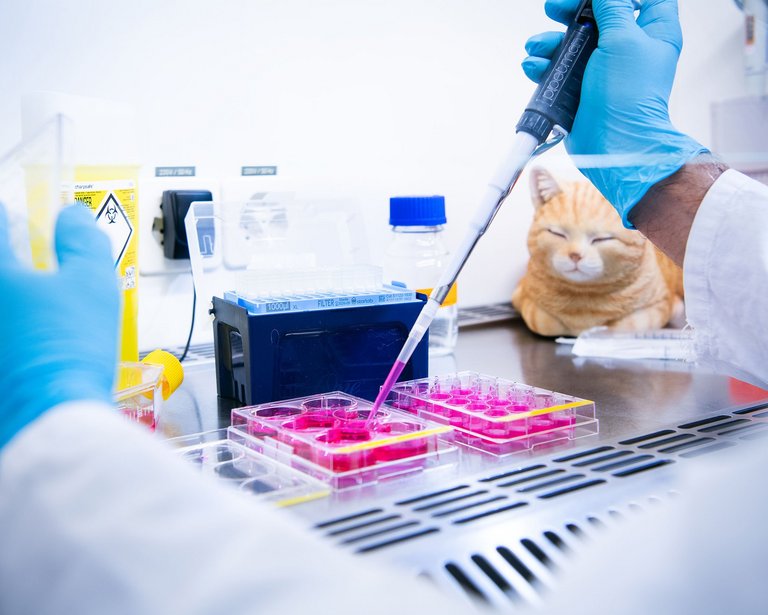
Research, innovation, academic career development
The funding at UZH’s disposal for supporting research and academic career development is not unlimited. That makes it all the more important to use the funding in a way that creates lasting results.
The initiative and drive of UZH’s researchers forms the bedrock of our strong position as a research university. UZH’s University Research Development (UFO) framework, which was strategically redesigned in 2021, builds on this foundation. It follows the basic principle of “strengthening strengths” with a focus on three action areas: research priorities and networks, personal and career development, and strategic research infrastructure.
Building permanent structures
The funding for individual research priorities is distributed in such a way that it promotes structural development for the long-lasting benefit of researchers, UZH and all of society. UZH develops skills, networks, methodologies and technologies while keeping in mind the need to harness synergies over the long term. This also applies to innovation funding, which currently focuses on the following priorities: life sciences, aerospace, digitalization and healthy longevity.
Funding research priorities in a way that also develops structures in the long term indirectly supports personal and career development too: it increases the attractiveness of UZH in the eyes of first-rate researchers and creates interesting opportunities for early career academics.
Fostering interdisciplinarity
Researchers are responsible for determining the content of projects which receive research priority funding, with one proviso: the projects must be interdisciplinary. This requirement exists for two main reasons: first, interdisciplinarity stimulates scientific creativity and productivity. Multifaceted perspectives and approaches are needed to find answers to complex societal challenges. Second, having an interdisciplinary focus helps institutes and faculties build up and leverage expertise and technologies.
Innovation and entrepreneurship
The UZH Innovation Hub promotes innovation and the transfer of research findings into society and the private sector. Various funding instruments provide strategic support to researchers and students throughout all project phases, including the sharing of business expertise. In 2022, the Entrepreneur Fellowship Program awarded two biotech fellowships and five medtech fellowships. Four digital fellowships can also be awarded by 2023. The Digital Innovation Grant pilot program was made permanent in 2022 due to its great success

UZH is currently funding 13 University Research Priority Programs (URPPs) and 12 Clinical Research Priority Programs (CRPPs). The flagship projects of Hochschulmedizin Zürich, the research priorities of University Medicine Zurich (UMZH) and a range of centers of excellence and research initiatives also receive financial support, as do the four focus areas of the Innovation Hub and the two projects supported by the new TRANSFORM funding instrument launched in 2022.
Example 1: Healthy Longevity Center
UZH’s research on aging is a prime example of how a unique and leading global network of expertise could be established at the university – thanks to the initiative of researchers and funding with a long-term vision. The Center for Gerontology was founded in 1998 and was joined by the International Normal Aging and Plasticity Imaging Center (INAPIC) shortly afterwards. This created a foundation for the Dynamics of Health Aging URPP, established in 2013.
In 2022, this network was further expanded and solidified with the founding of the Healthy Longevity Center (HLC), which is now one of the four clusters at the UZH Innovation Hub. It combines research and innovation and is a global leader in the development of measuring instruments for longevity research.
Example 2: Precision Medicine in Oncology
Zurich is home to UZH, ETH Zurich and four university hospitals, making the location a hub for expertise in medical research and teaching as well as healthcare. Since 2018, these six institutions have been working together more closely as part of University Medicine Zurich (UMZH), a coordinating body led by UZH.
Three centers within UMZH – the Tumor Profiler Center, the Comprehensive Cancer Center Zurich and The LOOP Zurich – are advancing research in the field of precision medicine. An important part of this collaboration is the BioMedical Informatics Platform (BMIP), which should be up and running by the end of 2024. BMIP will act as a repository for medical treatment and research data collected by the four university hospitals. The data will be anonymized and made available in standardized format in line with the standards of the Swiss Personalized Health Network (SPHN). The result will be a centralized data pool that can be harnessed for use in a wide variety of disciplines and that also ensures that patients receive effective, evidence-based treatment.
Example 3: One Health and Quantitative Legal Research
TRANSFORM, a new funding line that stands for “To Reach a New Structure for Optimal Research and Methods”, already mentions the principle of long-term structural development in its name. TRANSFORM is explicitly intended to accelerate researchers’ bottom-up initiatives and to place them within structures that benefit the development of the university as a whole, both via the creation of new units and the reorganization of existing ones. With this aim in mind, the Institute of One Health Research and the Center for Legal Data Science received initial funding of around a total of CHF 2.7 million for four years. The Institute of One Health Research links up research-heavy veterinary, medical and natural science institutes at UZH. The Center for Legal Data Science is also a perfect fit for UZH’s digitalization strategy.

Early-career researchers can apply for competitive candoc and postdoc grants, and since 2021 they can also apply for the UZH Doc.Mobility program. Entrepreneur Fellowships help scholars turn research results into market-ready products. So far these fellowships have been awarded in biotech, medtech and digital tech – and most recently, in sustainability.
UZH also uses instruments with a long-term focus when it comes to personal and career development. For instance, assistant professorships at UZH are usually on the tenure track – in other words, with the prospect of permanent employment. This helps keeps expertise within the UZH community. In parallel, an array of support programs from the Graduate Campus and the Innovation Hub help prepare academics for careers outside of the university.
Next Generation@UZH
The traditional academic career starts at the doctorate level, transitions to the postdoc phase and ultimately ends in a professorship. However, professorships are rare and may not appeal to all young researchers. As part of Next Generation@UZH, the university will be offering positions for lecturers and senior lecturers starting in 2023. These positions create attractive career opportunities for well-qualified postdocs. It is planned that the permanent, independent lecturer positions will be generously resourced, and will focus on either teaching or research. Furthermore, the employment conditions for teaching and research assistants and doctoral students will be revised to provide consistent regulation of “protected time” – the time at their disposal for their own research – across the university.

“Universities need to move with the times if they are to remain attractive as employers. With the new lecturer positions, UZH has created an interesting career option that can prevent excellent minds from leaving academia for industry. These positions are ideal in particular for young parents, for people who need to balance paid work and care responsibilities, or those who need planning security.”
Co-president of the Association of Junior Researchers of the University of Zurich (VAUZ) and PhD candidate at the Institute of Experimental Immunology.

“The fact that the departments and institutes can now create independent, permanent upper mid-level academic positions is a sign of official recognition and appreciation of the work of our members.”
Co-president of the Association of Senior Researchers and Teaching Staff of the University of Zurich (VFFL) and group leader at the Department of Chemistry.

“One Health refers to a holistic approach in which researchers from different scientific disciplines (encompassing animals, humans and the environment) work together to find solutions to the major health problems of our time. The new TRANSFORM funding instrument makes it possible to build a sustainable supra-faculty structure for this purpose.”
Dean of the Vetsuisse Faculty and professor at the Institute for Food Safety and Hygiene

“Interdisciplinary collaboration doesn’t just happen by itself. Even if everyone believes collaboration is key, academic recognition is usually easier to achieve if you remain a specialist in your own subject. That’s why we need targeted support for interdisciplinary collaboration.”
Dean of the Faculty of Arts and Social Sciences and professor of political economy and development